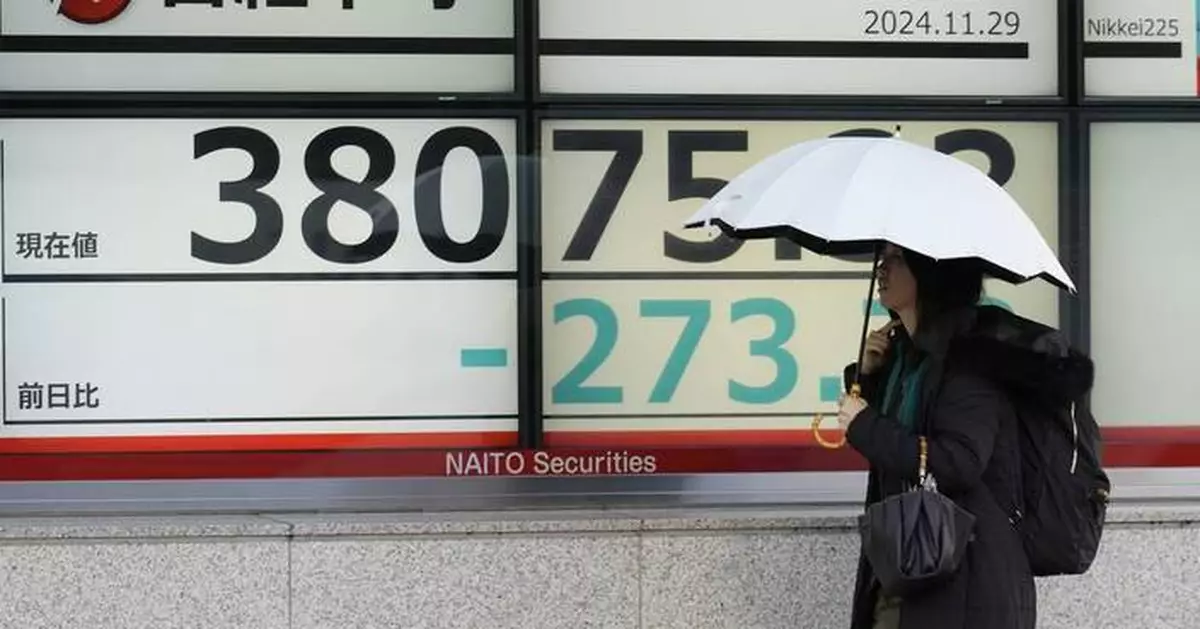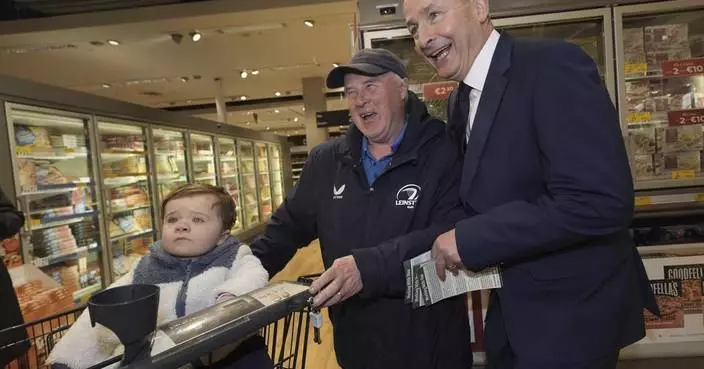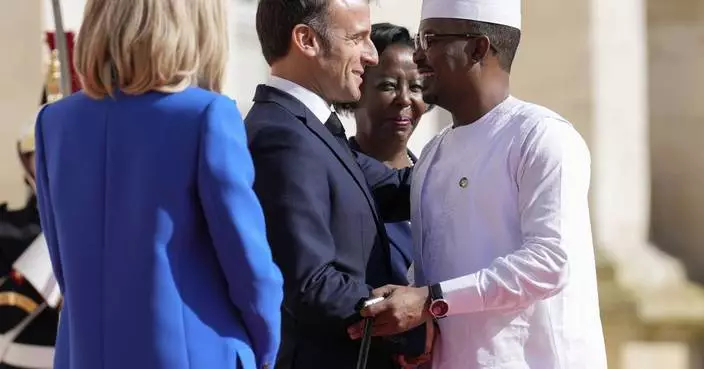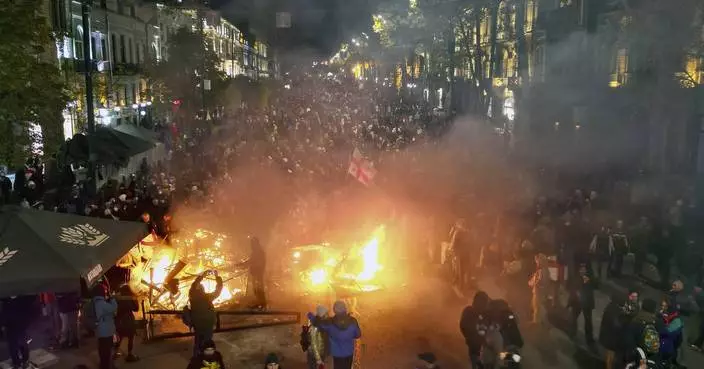HONG KONG (AP) — Global shares mostly fell on Friday after U.S. markets were closed Thursday for the Thanksgiving holiday.
France’s CAC 40 was nearly unchanged at 7,178.37 in early trading, while Germany’s DAX edged down 0.1% to 19,407.50. Britain’s FTSE 100 declined less than 0.1% to 8,279.02. Investors were awaiting preliminary inflation data for November for the region using the euro, which may influence the European Central Bank’s future interest rate decisions.
The futures for the S&P 500 and the Dow Jones Industrial Average were both 0.3% higher. U.S. markets will reopen for a half day on Friday.
In Asian trading, Tokyo's Nikkei 225 index fell 0.4% to 38,208.03 after the government reported that inflation in Tokyo, considered an indicator for national trends, was 2.6% in November, up from 1.8% last month mainly due to a surge in fresh food prices. Core inflation, which excludes fresh food prices, rose modestly to 2.2% year-on-year from 1.8% in October.
Higher inflation tends to reinforce expectations that the Bank of Japan will push ahead with more increases in its benchmark lending rate. That, in turn, pushes up the value of the Japanese yen, which was trading at 150.02 to the U.S. dollar early Friday. A week earlier it was trading above 155 yen per dollar.
The central bank's current policy rate is 0.25%. It only ended a long spell of negative rates in March on the presumption that Japan had largely achieved its 2% inflation target.
South Korea’s Kospi lost 2% to 2,455.91 after the central bank cut its benchmark interest rate on Thursday to relieve pressure on its slowing economy. Australia's S&P/ASX 200 edged 0.1% lower to 8,436.20.
Chinese markets advanced. Hong Kong's Hang Seng index gained 0.3% to 19,423.61. Meanwhile, the Shanghai Composite index surged 0.9% to 3,326.46. Gains in retailers' stocks drove market gains after a two-day meeting in Beijing focused on promoting consumption ended on Thursday. Shares of Yonghui Superstore, China’s fifth-largest hypermarket chain operator, surged by over 10%.
Investors also are looking ahead to a major economic planning meeting that is usually held in December.
The holiday Thursday brought a respite in news on President-elect Donald Trump's plans for after he takes office, after markets were rocked earlier in the week by his announcement that he plans to order immediate sharp tariff hikes on imports from Canada, Mexico and China.
On Wednesday, the S&P 500 fell 0.4% and the Dow fell 0.3%. The Nasdaq composite, which is heavily weighted with technology stocks, fell 0.6%.
In other dealings Friday, U.S. benchmark crude oil lost 16 cents to $68.56 per barrel, while Brent crude, the international standard, fell 37 cents to $72.41 per barrel.
The euro rose to $1.0580 from $1.0554.

A sign marking the intersection of Wall Street and South Street is shown in New York's Financial District on Tuesday, Nov. 26 2024. (AP Photo/Peter Morgan)
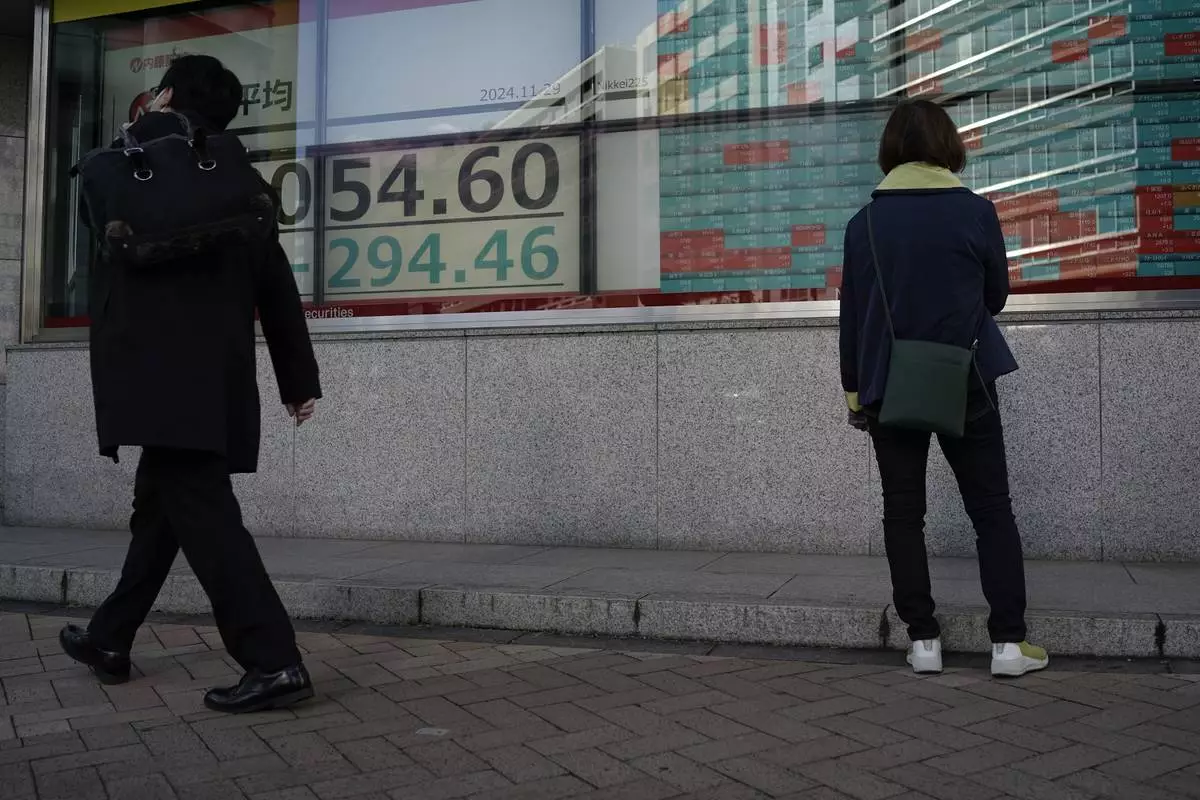
A person looks at an electronic stock board showing Japan's Nikkei index at a securities firm Friday, Nov. 29, 2024, in Tokyo. (AP Photo/Eugene Hoshiko)
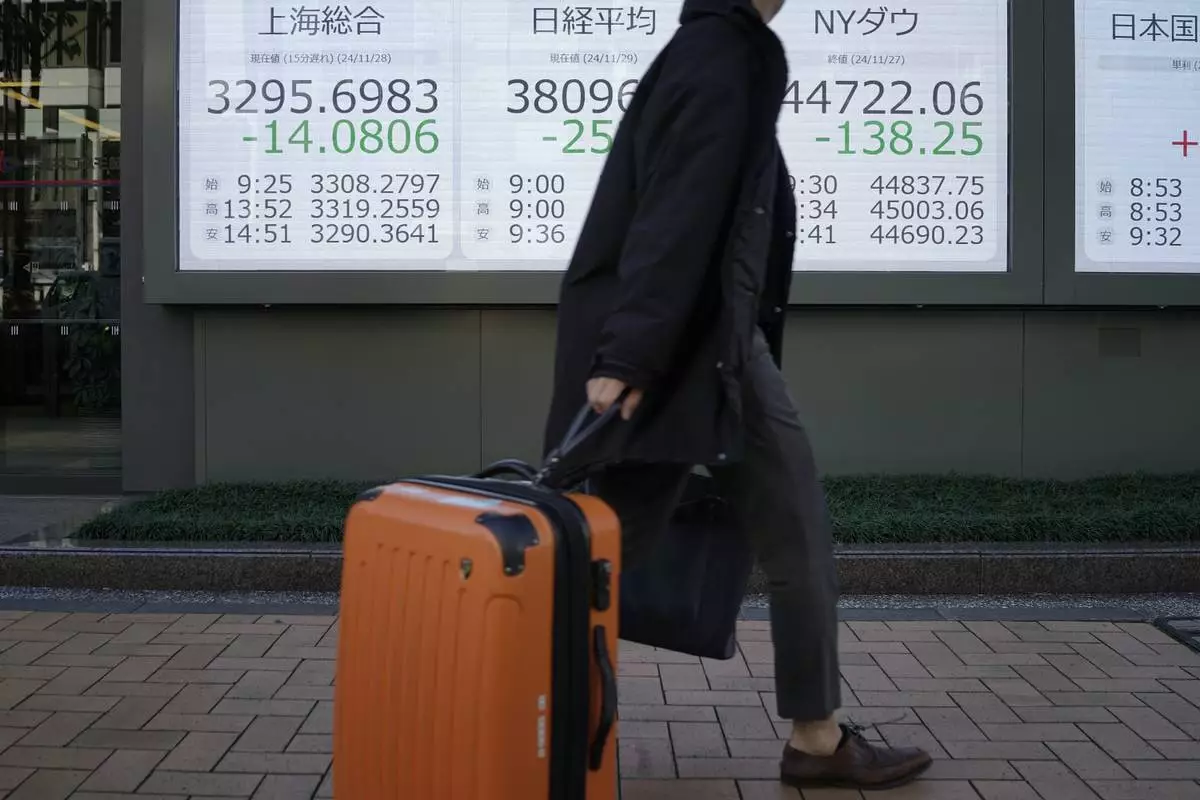
A person walks in front of an electronic stock board showing Japan's Nikkei, New York Dows and Shanhai indexes at a securities firm Friday, Nov. 29, 2024, in Tokyo. (AP Photo/Eugene Hoshiko)
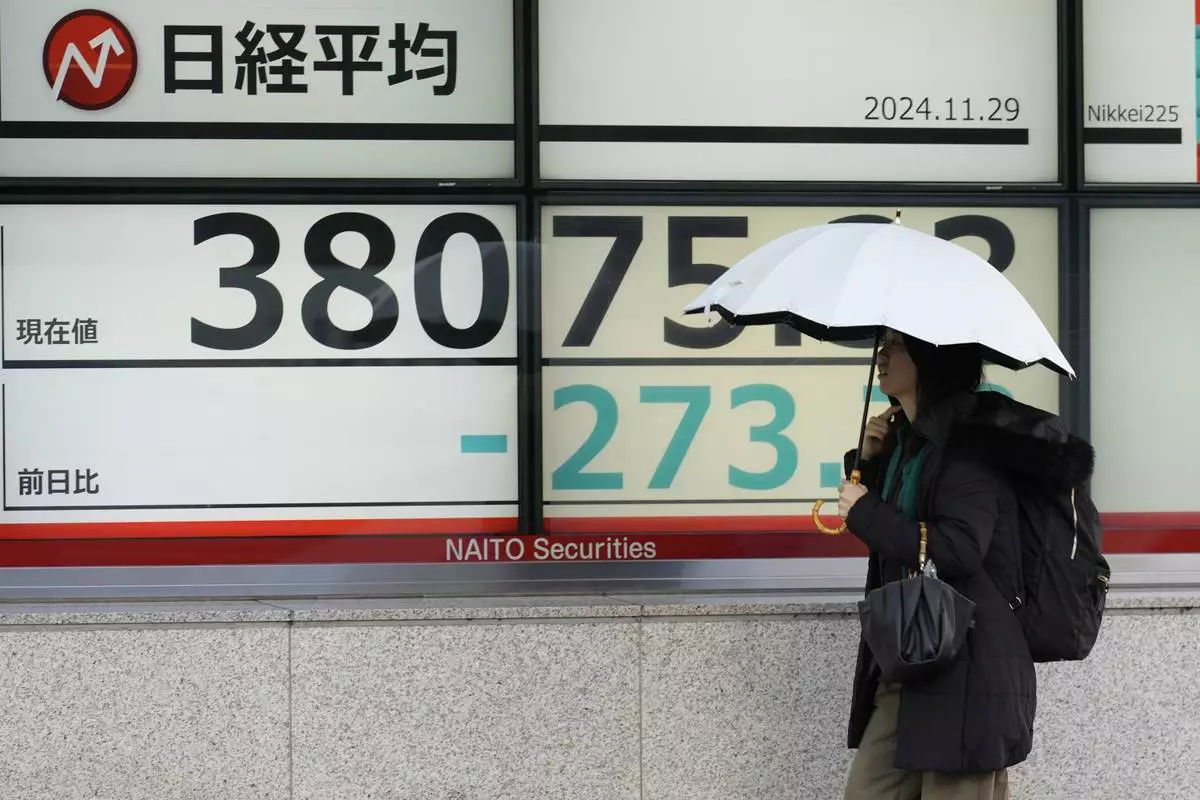
A person walks in front of an electronic stock board showing Japan's Nikkei index at a securities firm Friday, Nov. 29, 2024, in Tokyo. (AP Photo/Eugene Hoshiko)
BUSAN, South Korea (AP) — Negotiators working on a treaty to address the global crisis of plastic pollution inched closer to an agreement Friday, with more countries saying they want to address the total plastic on Earth.
The most contentious issue of the talks is whether there will be a limit on the amount of plastic that companies are allowed to produce. Panama proposed text for the treaty to address plastic production on Thursday.
Juan Carlos Monterrey, head of Panama's delegation, said it's a compromise proposal to build consensus because it does not include a numerical target or production cap. Instead, it says countries would adopt a global target at a later conference of the parties meeting.
Support for Panama's proposal quickly grew to over 100 countries. Some plastic-producing and oil and gas countries, including Saudi Arabia, vigorously oppose including plastic production in the treaty, calling it a red line. Russia’s delegation has said if the world is serious about this treaty, negotiators must concentrate on provisions acceptable for all delegations.
On Friday afternoon, Luis Vayas Valdivieso, the committee chair from Ecuador, issued a paper with draft treaty text, condensing the views expressed by negotiators during the week. The treaty article on production has Panama's proposal. The other option is to strike that article.
“This is great! This is great,” Monterrey said as he read the document on his cellphone just after it was issued.
“It is a big show of force, of muscle, for those countries that are ambitious. And also this shows that consensus is still possible,” he said in an interview.
Global plastics production is set to reach 736 million tons by 2040, up 70% from 2020, without policy changes, according to the Organization for Economic Cooperation and Development.
Environmental organizations demonstrated with signs outside the convention center Friday morning, demanding that negotiators show courage.
Negotiators began meeting Monday in Busan. They split into groups to consider text for treaty articles. By the midpoint of the negotiations, none had agreed to anything. They were having long discussions over topics where there’s more agreement, such as the need to manage plastic waste better. And they hadn't settled on some of the basics of the treaty, such as the scope and definitions.
Valdivieso told them Wednesday night their progress was too slow and they had to speed up significantly.
The delegations will now discuss Valdivieso's paper and decide whether to agree to the articles. The meeting ends late Sunday or early Monday.
U.N. Environment Program Executive Director Inger Andersen said there's still enough time to land an agreement, “if we work hard.”
The Associated Press’ climate and environmental coverage receives financial support from multiple private foundations. AP is solely responsible for all content. Find AP’s standards for working with philanthropies, a list of supporters and funded coverage areas at AP.org.
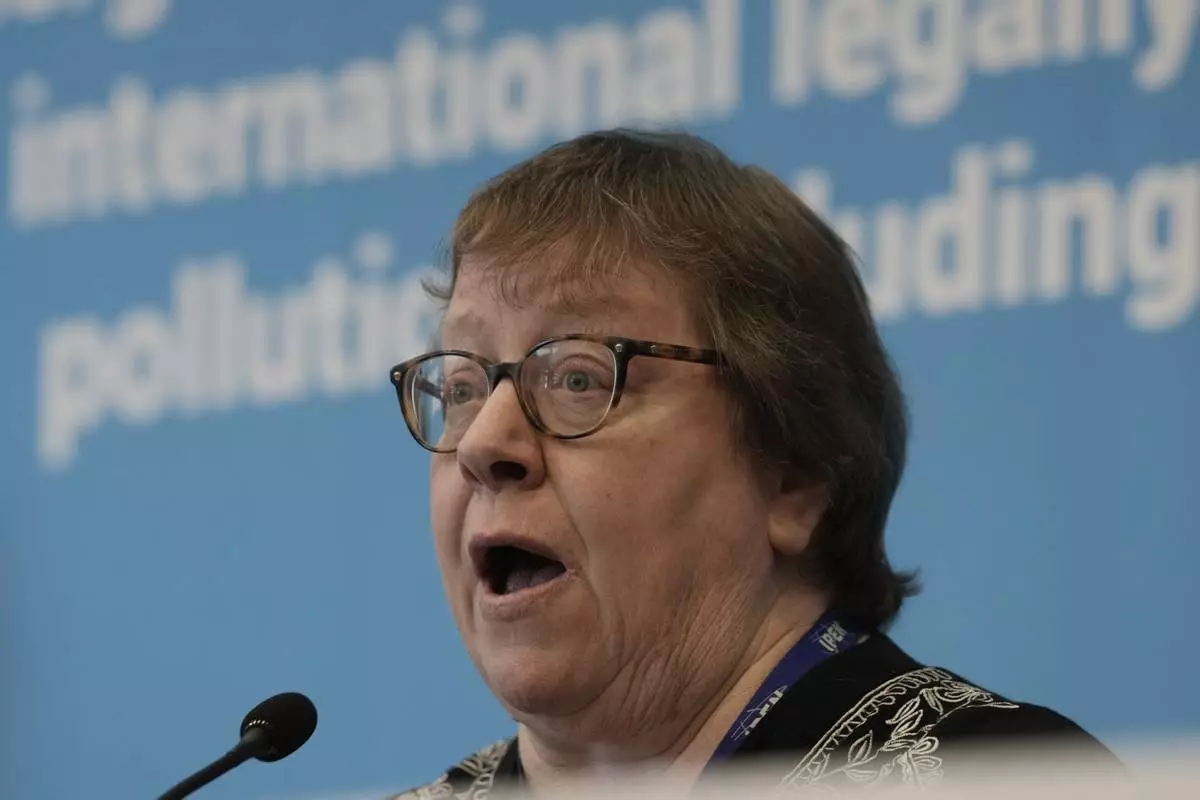
Pamela Miller, Co-chair of the International Pollutants Elimination Network (IPEN), speaks during a press conference with IPEN members at the fifth session of the Intergovernmental Negotiating Committee on Plastic Pollution in Busan, South Korea, Friday, Nov. 29, 2024. (AP Photo/Ahn Young-joon)
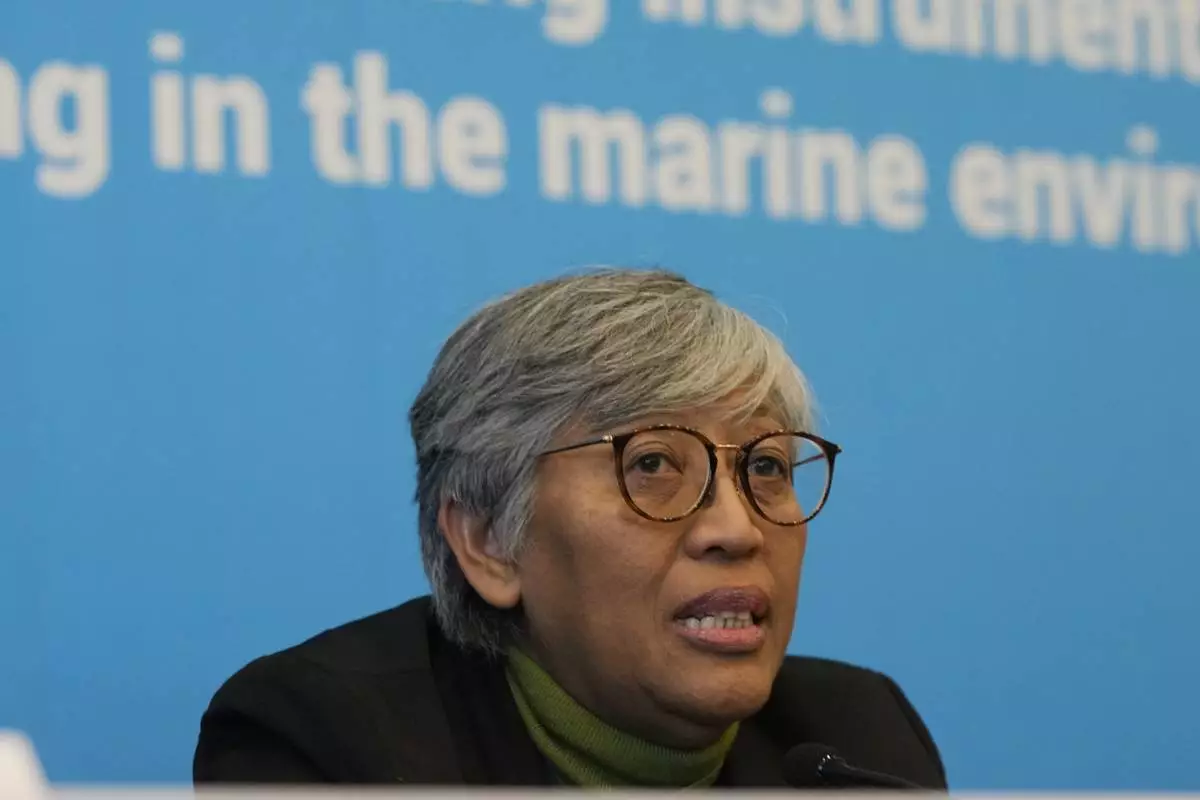
Yuyun Ismawati, Co-chair of the International Pollutants Elimination Network (IPEN), speaks during a press conference with IPEN members at the fifth session of the Intergovernmental Negotiating Committee on Plastic Pollution in Busan, South Korea, Friday, Nov. 29, 2024. (AP Photo/Ahn Young-joon)
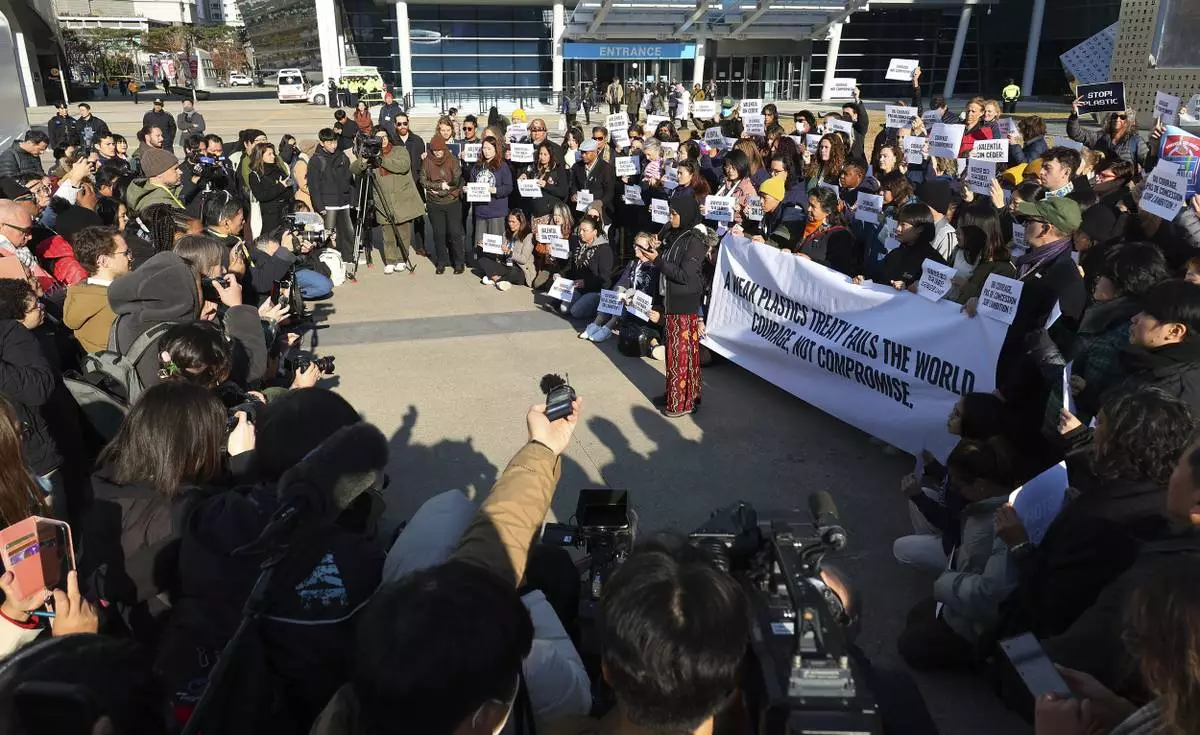
Environment activists hold a press conference calling for a strong global plastics treaty outside of the venue for the fifth session of the Intergovernmental Negotiating Committee on Plastic Pollution in Busan, South Korea, Friday, Nov. 29, 2024. (Son Hyung-joo/Yonhap via AP)
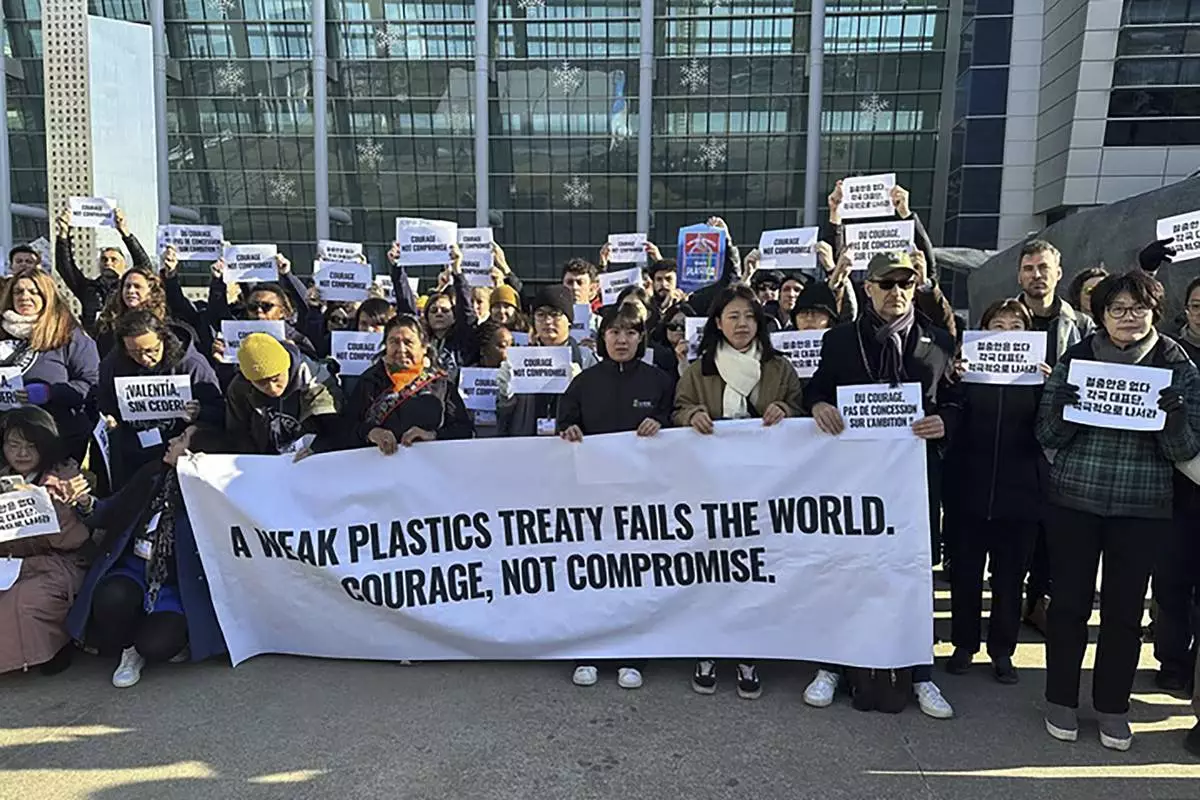
Environment activists hold a press conference calling for a strong global plastics treaty outside of the venue for the fifth session of the Intergovernmental Negotiating Committee on Plastic Pollution in Busan, South Korea, Friday, Nov. 29, 2024. (AP Photo/Jennifer McDermott)






